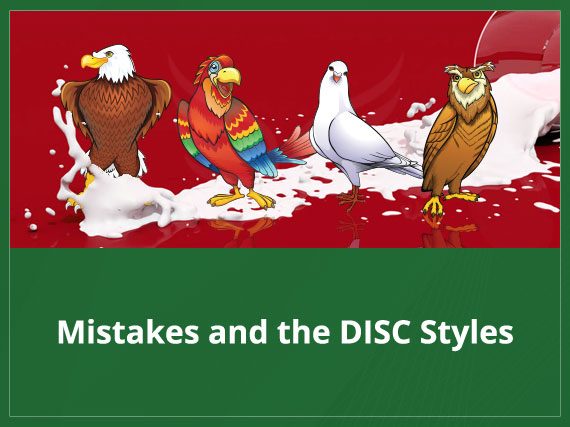2015 in Review: Year of the Personality
As 2015 has recently come to a close, our Facebook feeds are full of links to Top Ten lists and think pieces ruminating on the biggest buzzwords and trends of



We all know that mistakes are a part of life, but not everyone deals with mistakes in the same way. In fact, our DISC style has an impact on how willing we are to make mistakes and how we respond after we’ve made them.
People with the take charge, direct and confident Dominant (or D style) are prone to making big mistakes because they take big risks. For the D, with risk comes reward, so they are willing to take their chances to achieve a big payoff. And if it doesn’t work, D’s don’t internalize the mistake and feel like a failure. They chalk it up to a learning opportunity and move on.
Like the D’s, enthusiastic, optimistic, social Interactive people (I’s) recover quickly when they make mistakes. They do not view mistakes as a reflection of who they are or what they are capable of, but rather it was just something that did not play out as expected. Better luck next time.
Soft-spoken, harmonious, stable Supportive individuals (S’s) seek to maintain the status quo. Therefore, mistakes are minimized by avoiding big risks. The S desire to utilize existing systems and go with what works shields them from risk. And when mistakes are made, they tend to internalize them as poor judgment, rather than unfortunate circumstances that drove the mistake to occur.
Just as the S’s don’t make big mistakes, logical, accurate, process-oriented Conscientious people (C’s), avoid making errors as well. They minimize mistakes by thoughtfully thinking through all possibilities before they act. And when they do make an uncharacteristic mistake, they will search out what they missed to have caused such an error.
So, the next time you are dealing with someone who just made mistake, remember that how they respond to that mistake is linked to their DISC style.
Please confirm you want to block this member.
You will no longer be able to:
Please allow a few minutes for this process to complete.